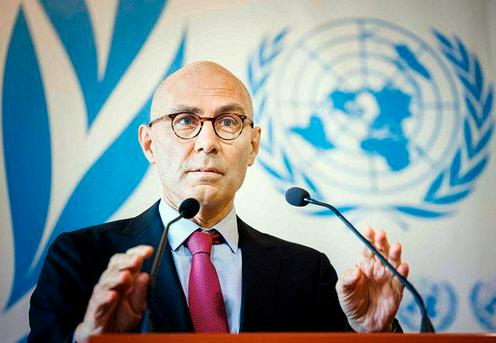The abolition of the death penalty for states that have ratified the relevant international treaties is legally irreversible, the Office of the UN High Commissioner for Human Rights (OHCHR) said in a statement.
The UN agency emphasized that the Human Rights Committee, which monitors compliance with the International Covenant on Civil and Political Rights (ICCPR), has previously clarified that neither the covenant nor its Second Optional Protocol contains provisions for denunciation. This means that for states that have ratified these treaties, the abolition of the death penalty is legally irreversible, and they are prohibited from reintroducing it into their legislation, explained UN High Commissioner for Human Rights Volker Türk.
Furthermore, a state that has ratified the protocol without reservations has no right to apply the death penalty, even for the most serious crimes.
“Kyrgyzstan has for many years been part of the growing—and very welcome—global consensus on the universal abolition of the death penalty. The current legislative initiatives contradict the spirit of the country’s commitments, including its recent support for a Human Rights Council resolution calling on states to ratify the Second Optional Protocol,” said Türk.
He recalled that Kyrgyzstan suspended the use of the death penalty in 1998 and formally abolished it in 2010 after ratifying the Second Optional Protocol to the ICCPR. This international treaty obliges states parties to take all necessary measures for the complete abolition of capital punishment.
Reinstating the death penalty would constitute a serious violation of international law and a regressive step for Kyrgyzstan, Türk stated.
“The rights enshrined in the covenant and the Second Optional Protocol, once granted, belong to the people living within the territory of a state party and cannot be taken away, regardless of the justification offered,” the High Commissioner stressed.
He added that no system of justice is immune from error, and the reintroduction of the death penalty would inevitably lead to the execution of innocent people.
While acknowledging the gravity of the crimes that prompted this discussion, Türk pointed out that there is no evidence that capital punishment effectively deters crime.
The OHCHR head urged the Kyrgyz authorities to immediately abandon the idea of reinstating the death penalty and instead focus on strengthening legal protections for citizens, ensuring access to justice, and providing compensation to victims. According to Türk, the response to violence, including sexual violence, should be victim-centered and supported by adequate resources.
Currently, around 170 countries worldwide have either abolished the death penalty or introduced a moratorium on its application in law or in practice.
The move to reinstate the death penalty in Kyrgyzstan was prompted by the rape and murder of 17-year-old Aisuluu Mukasheva in late September 2025. Following the incident, the president instructed lawmakers to draft constitutional amendments that would permit the death penalty for the rape of a child and for rape followed by the murder of a child or an adult. The proposal also includes withdrawing from the Second Optional Protocol. The draft law introducing these constitutional changes is ready, and a national referendum on the issue is expected in the coming weeks.










